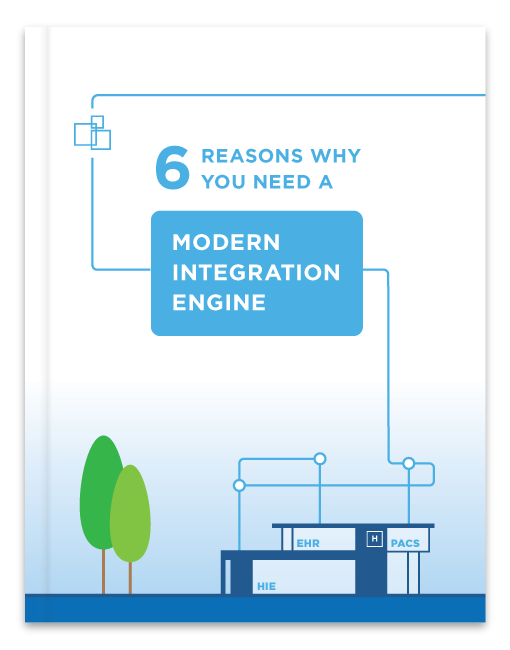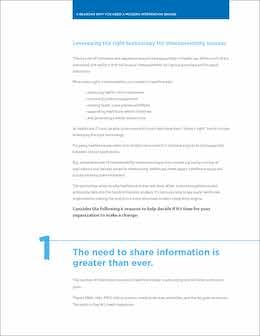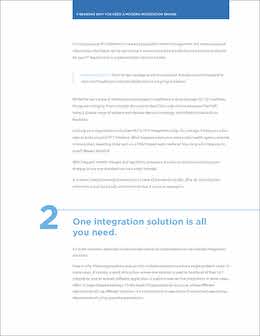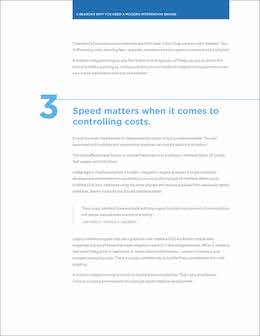
As the demands of interoperability continue to expand, legacy HL7 interface engines risk becoming obsolete.




There’s a lot of frustration and skepticism around interoperability in healthcare. While much of it is warranted, the reality is that the issue of interoperability isn’t going anywhere and for good reason too.
When done right, interoperability can transform healthcare by:
• producing better clinical outcomes
• increasing patient engagement
• creating faster, more precise workfows
• supporting healthcare reform initiatives and generating a better bottom line
As healthcare IT must be able to do more with much less these days, “doing it right” has to include leveraging the right technology. For years, healthcare providers and vendors have used HL7 interface engines to exchange data between clinical applications.
But, as the demands of interoperability continue to expand to include a growing number of applications and devices aimed at modernizing healthcare, these legacy interface engines are quickly showing their limitations.
The technology exists to take healthcare to the next level. When it comes to getting useful, actionable data into the hands of decision-makers, it’s not surprising to see many healthcare organizations making the switch to a more advanced modern integration engine.